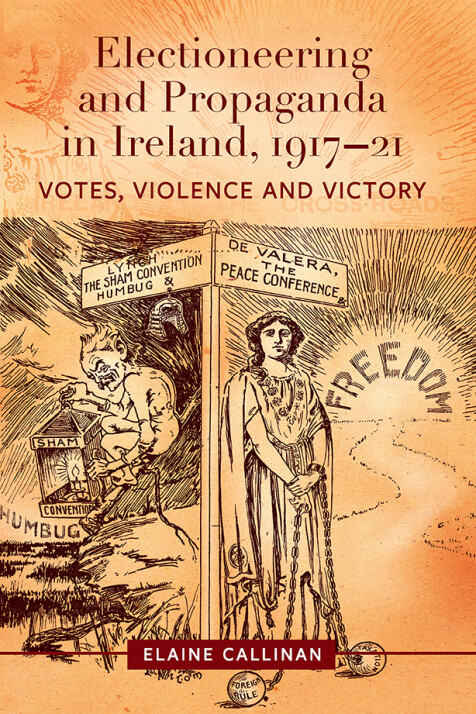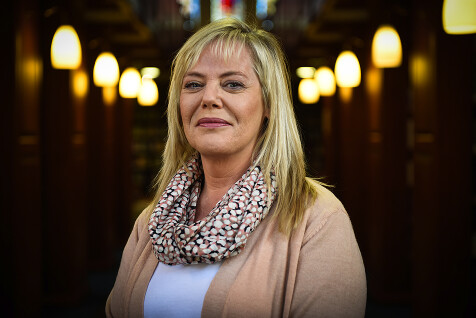Electioneering and Propaganda in Ireland, 1917–21
Votes, violence and victory
Elaine Callinan
“Callinan has convincingly provided a nuanced understanding of the use of propaganda in elections and how it fitted into the wider picture of revolutionary Ireland. The book is well written and deftly handles what could otherwise be a dense and dry subject. Her analysis and her ability to weave a complex local and national narrative together is to be commended. Additionally, the sources used are comprehensive and assiduously used. This should be a key textbook for both undergraduate and postgraduate students studying modern Irish History. It would also have an appeal to a wider non-academic audience as well.”. Martin Walsh, Irish Studies Review 30:1
“Elaine Callinan’s well-researched new book is a welcome addition to the canon tracing political rivalries during our revolutionary years … The author traces the evolution of the political process in Ireland through the four main political groups, the Irish Parliamentary Party, the Sinn Féin Party, the Labour Party and the various unionist groupings, both in Ulster and in the rest of the country.” Frank MacGabhann, Irish Independent November 2020
"Elaine [Callinan's] book provides an illuminating and unique analysis of the political rivalry between all the major parties during Ireland’s revolutionary years. Politicians, propagandists and their voluntary supporters instigated forceful election campaigns to promote ideologies and influence the minds of ordinary people. The goal was a victory at the ballot box during the by-elections, general elections and local government elections of this era. Elaine places her study within the wider contexts of the modernisation of propaganda during the Great War and the expansion of consumerism to conduct an examination of election activity – from candidate selection and fundraising to door-to-door canvassing, and everything in between. Running alongside war and revolution were the political struggles, and they equalled any of the military upheavals that transformed politics in Ireland." Carlow Historical & Archaeological Society
“Elaine Callinan’s in-depth study of the elections in these years is to be welcomed by historians and political scientists alike. It is a thorough, comprehensive study which will prove useful to students and scholars researching the period for some time to come. Callinan’s approach is a close examination of all polls in these years, beginning with the landmark by-elections in 1917 and 1918 and concluding with the two parliamentary elections held north and south in 1921 … there is much original and interesting material here … Drawing on contemporary as well as recent literature on advertising and marketing techniques, she analyses the methods of propaganda used and the themes each party and candidate emphasised. The discussion on methods is effective; the author highlights the role of clergy, newspapers, advertising, posters, songs, canvassing, and interestingly, categorises electoral violence as a method a propaganda. The treatment of the press is impressive with information regarding newspaper circulations particularly useful ... Callinan has provided a valuable account of the men, women and elections which characterised the political journey from the Rising to partition, self-government, and civil war.” Martin O’Donoghue, Irish Political Studies, August 2021
“In what is probably her most important contribution, Callinan attempts to demonstrate the ways that propaganda came to play a critical role in electioneering as those politics moved away from grappling with Home Rule, toward responding to and moulding a newly fluid and unpredictable public opinion amid a revolutionary period … In many ways, this is an admirable book. The author presents us with much information which is new, and its suggestion that it was at this time that propaganda assumes a larger role in Irish electioneering is generally convincing. It will no doubt lead to other work on propaganda and its historical role in Irish elections.” Seán Farrell Moran, Irish Literary Supplement (Spring 2022)


